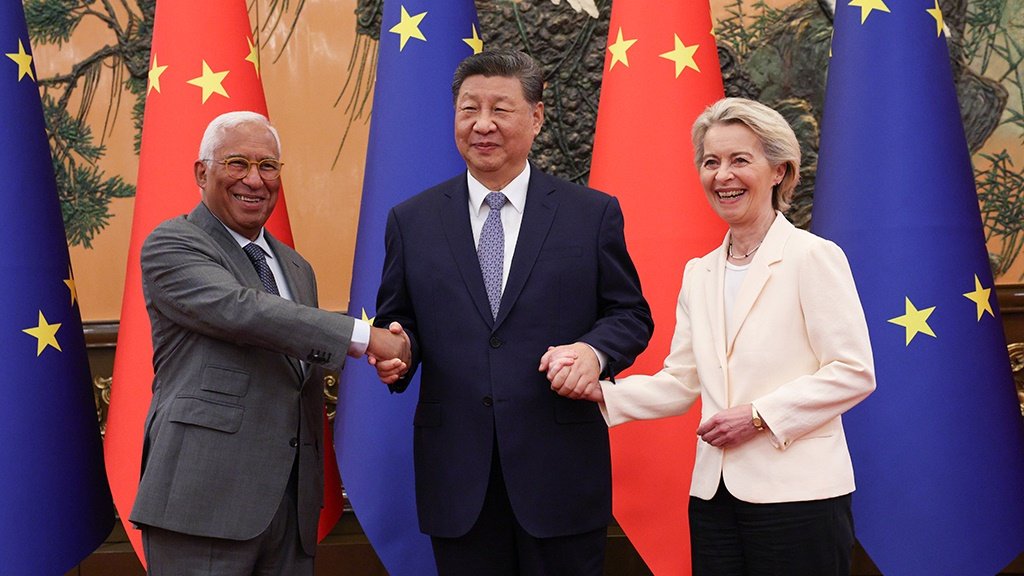Beijing (TDI): The leaders of the European Union met Chinese President Xi Jinping in Beijing on July 24, for the EU-China Summit to celebrate 50 years of diplomatic ties.
Although the meeting was an opportunity to enhance cooperation, it was dominated by differences over trade imbalances, market access, and China’s position on the Russia-Ukraine war.
European Commission President Ursula von der Leyen said the partnership was at an inflection point, with increasing economic and political imbalances straining relations.
She referred to the EU’s €305.8 billion trade deficit with China in 2024, calling it industrial overcapacity and poor market access for European businesses as key issues of concern.
Von der Leyen insisted on the necessity to rebalance the partnership and appealed to China to lift restrictions on exports and to enhance transparency.
President Xi recognized the divergences but called on both sides to handle them through communication. “The immediate challenges facing Europe do not come from China,” he stated.
Read More: All You Need to Know About the Upcoming China-EU Summit 2025
He cautioned against protectionism, saying that efforts to decouple economies would result in “self-isolation.” China’s foreign ministry later said that it was willing to discuss export controls, although there was no specific agreement.
There were also geopolitical tensions at the summit, notably over the Ukraine war. EU leaders called on Beijing to exert influence over Russia to bring an end to the war. Von der Leyen said that the way China continues to deal with Russia will be a determining factor in the EU-China relationship in the future.
Relations were also strained by recent EU sanctions on two Chinese banks for allegedly supporting Russia’s war effort, which drew official complaints from Beijing.
Read More: Beijing Urges Pragmatism as China-EU Ties Mark 50 Years
Trade tensions have deepened over the last year. The EU tariffs on Chinese-built electric cars are over unfair subsidies. China retaliated by imposing tariffs on European spirits and imposing new curbs on EU medical devices.
The two-day summit was cut to one day at China’s request. Though both sides expressed eagerness to continue cooperating, notably on climate change, there were few indications of tangible advances on major issues.
The summit highlights the interest on both sides in continuing to talk, but also deep strategic distrust. With both sides confronting growing global challenges, not least competition with the United States, EU-China relations look likely to remain complicated and cautious in the coming months.
A passionate International Relations student with a strong interest in diplomacy, policy, and global affairs. Dedicated to contributing thoughtful analysis and research on international issues.




